Blood cancer: Man almost paralysed by undiagnosed myeloma
- Published
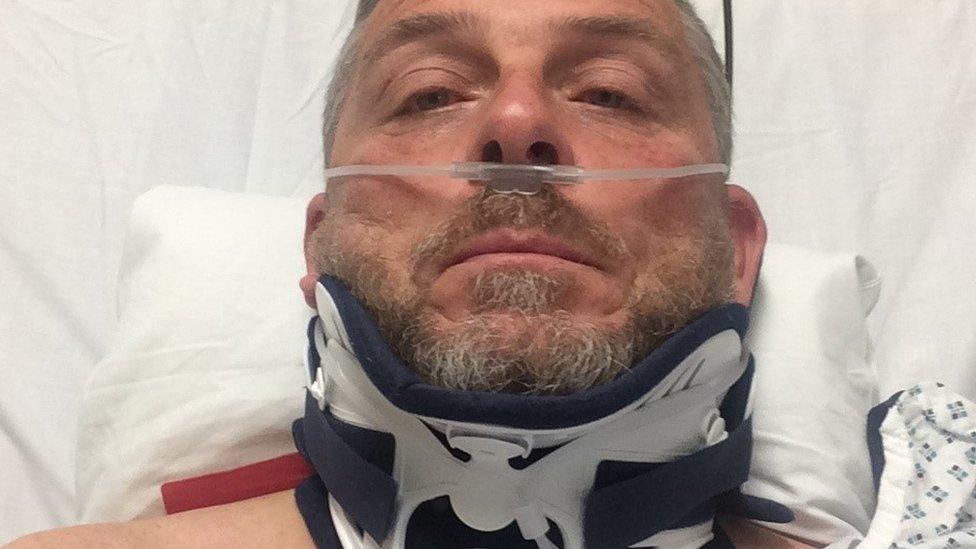
Jamie was diagnosed with myeloma in 2016
When Jamie Hart was sent for an X-ray on his painful neck he was not expecting to be diagnosed with incurable blood cancer and told he was one wrong move away from paralysis.
Jamie is one of about 24,000 people in the UK living with myeloma, external.
For months he continued coaching football and going to work, with no idea he had a collapsed vertebra.
"I'd been running around like a nutter playing football, heading the ball," said Jamie, from Newport.
"My spinal cord could have snapped at any time, worst-case scenario I could have been paralysed."
Back in August 2016, Jamie, who was then 49, started feeling lethargic and had a pain in the back of his neck.
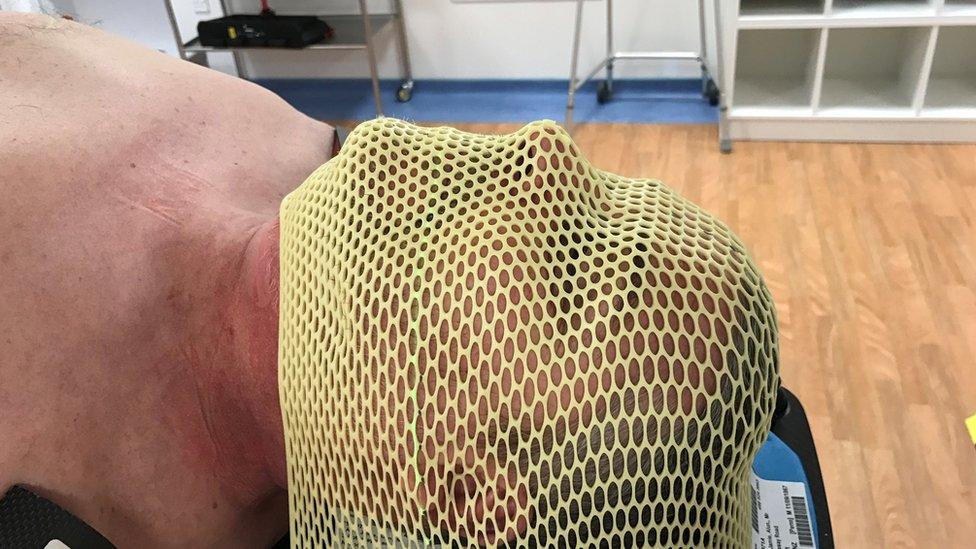
Jamie had no idea he had been walking around with a collapsed vertebra in his lower neck
"To describe it really, all I can say is that I thought my head was going to fall off," he said.
"It felt like my neck wasn't attached."
He went to his GP in the August and was referred for an X-ray.
While he waited he continued working his very physical job at Bettws leisure centre and coaching a football team.
At the end of October he went for his X-ray.
The radiographer asked him to wait "a moment" and left the room. She was gone for 20 minutes.
"I thought she'd forgotten about me but the next thing you know there's a doctor there who said, 'stay there, don't move, we've seen some abnormal images on your neck'," said Jamie.
The doctor explained he had a collapsed vertebra in his lower neck and had to be placed in a spinal collar to avoid paralysis.
He also had to have a cage inserted in his neck.
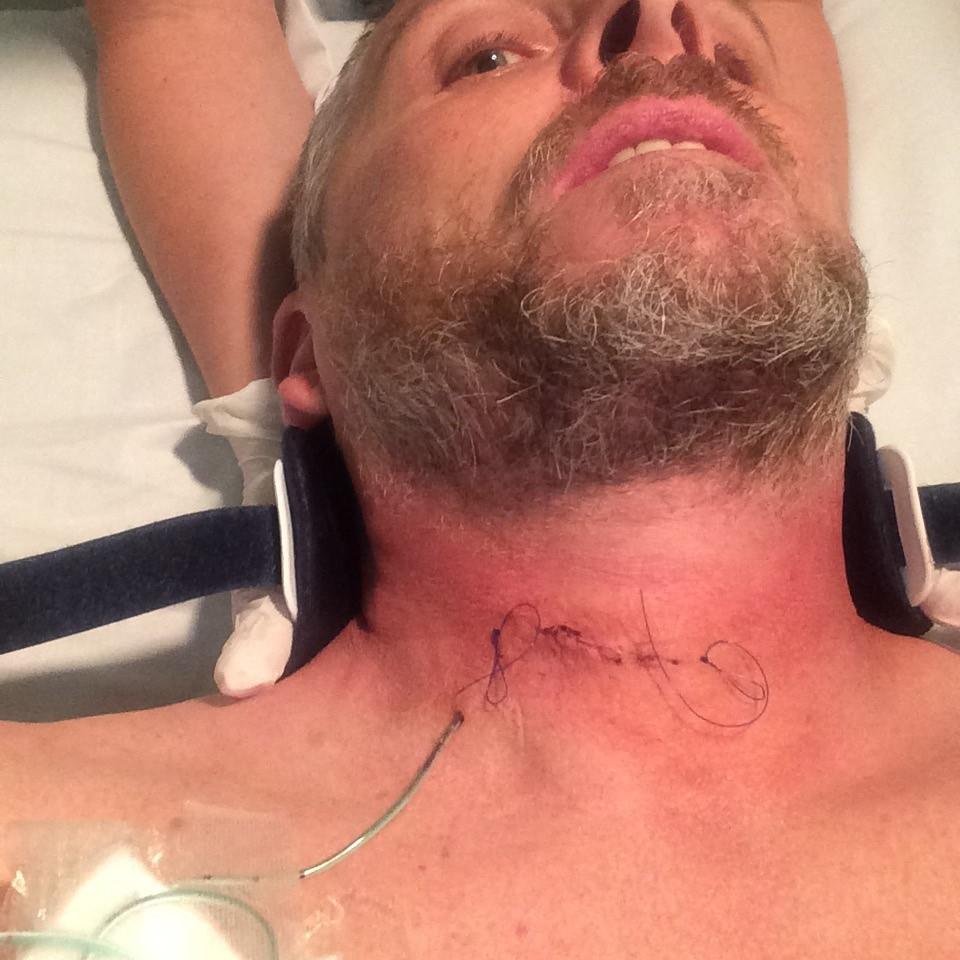
Jamie needed an operation to stabilise his neck
He was immediately admitted to the ward where he had to remain still in his neck collar.
An operation to stabilise his neck followed.
After the operation he was told the damage to his neck had been caused by blood cancer - myeloma.
"I didn't know anything about that whatsoever," he said.
Myeloma is an incurable blood cancer that occurs in the bone marrow.
Charity Myeloma UK says while it is incurable, it is treatable in the majority of cases.
Treatment generally leads to periods of remission but patients inevitably relapse, requiring further treatment.
Jamie said he thanked the doctor after receiving the life-changing news and has tried to remain positive ever since.
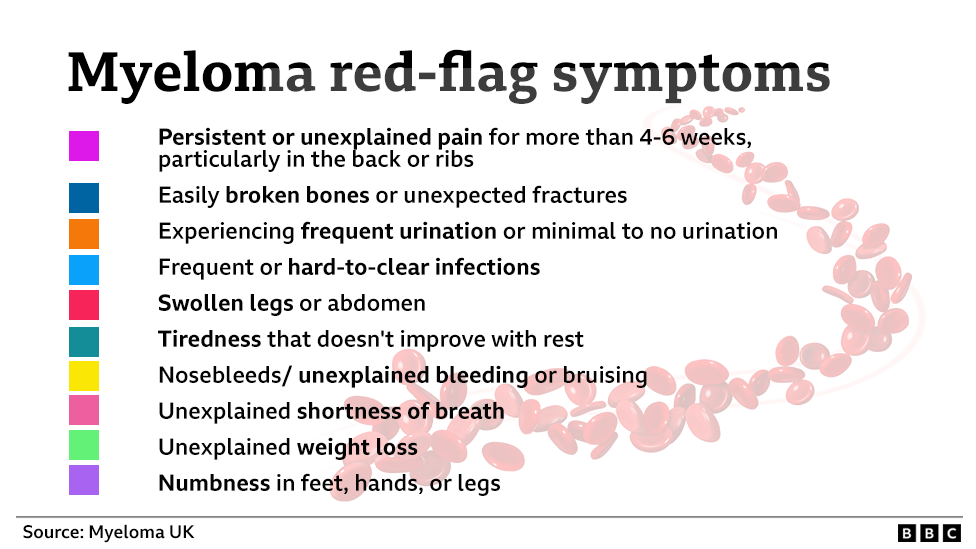
"I've been dealt a blow but I can't do anything about it," he said.
"Let's say I've got 10 to 15 years, maybe less, to live - why am I going to worry about things I can't change?
"I want to live my life to the fullest for how long that might be."
He believes the news was harder on his family - he has been with his wife for 20 years and has an 18-year-old son, 23 year-old step daughter and three-year-old grandson.
After the diagnosis Jamie spent a month in hospital, 25 rounds of radiotherapy followed and had to retire from his job.
He had a stem cell transplant, external in June 2019, after which he went into remission
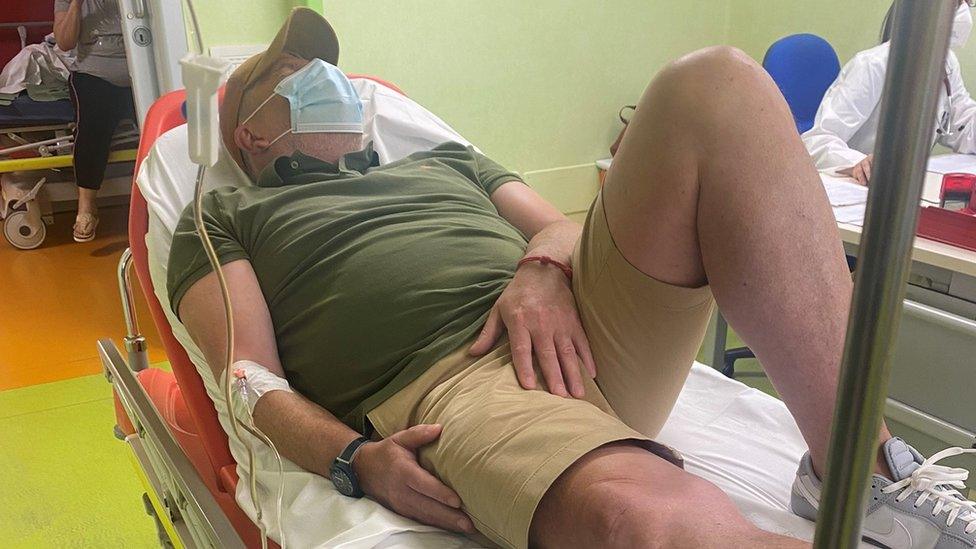
Jamie has been on chemotherapy since breaking his arm in 2022
But while on holiday in Sardinia in June 2022 he was on a sightseeing bus when he broke his arm.
"As I stood up and turned to change seats to the other side I felt my arm click and snap," he said.
It was broken in three places. Tests showed the break was due to a weakness from the myeloma - his cancer had come back.
He has been back on chemotherapy ever since.
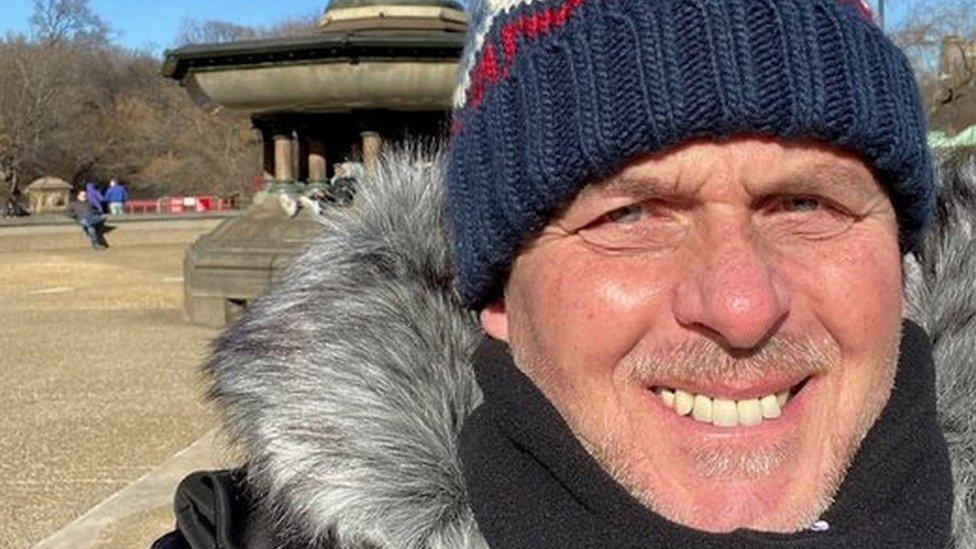
Jamie says his diagnosis has given him a new perspective on life
Jamie said living with myeloma had completely changed his outlook on life.
"We look forward to doing things as a family," he said.
"I value friends more... and I try to help more people... I've had help and I want to give something back."
Now he wants to raise awareness of the condition and help Myeloma UK track down the estimated 851 people, external it believes are living with undiagnosed myeloma because of a drop in diagnoses during the Covid pandemic.
"These people need to be found, they need to go to the doctors," said Jamie.
Sophie Castell, the charity's chief executive, said: "The most important thing people can do is rule themselves out by checking their symptoms and, if anything isn't right, go see their GP.
"It might take more than one appointment for your doctor to put the pieces of the puzzle together so please keep pushing or ask for a second opinion."
The charity's figures show one in four people wait more than 10 months for a diagnosis, some of the longest delays out of any cancer in the UK.
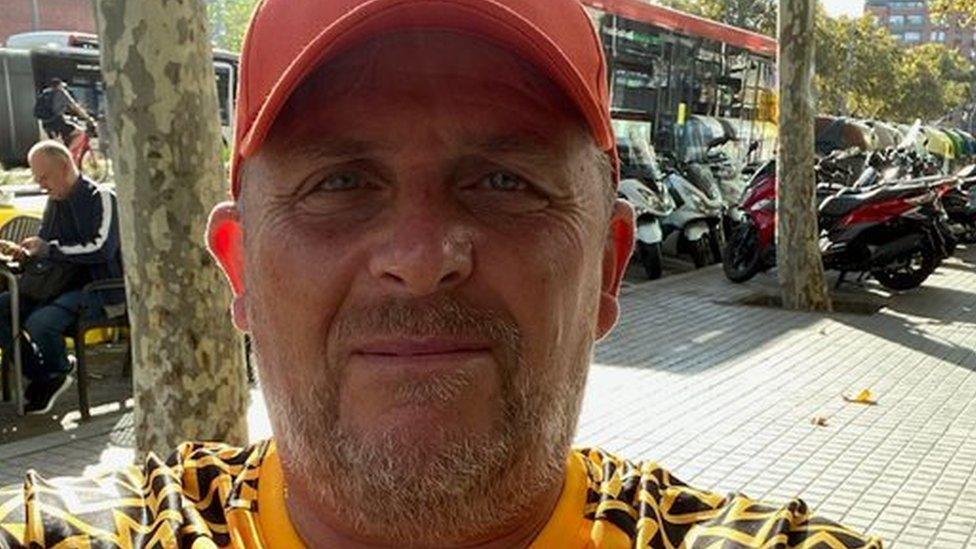
Jamie says despite his diagnosis he feels lucky
Jamie also wants greater awareness of myeloma from GPs and the general public.
"If I ask 10 people [if] they know what myeloma is I'll have 10 people who say they don't know," he said.
Despite his diagnosis, when Jamie looks back over the past few years he feels grateful.
"With treatment myeloma is manageable," he said.
"I've got to look back and say I was lucky - my spinal cord could have gone at any time."
Related topics
- Published6 June 2023
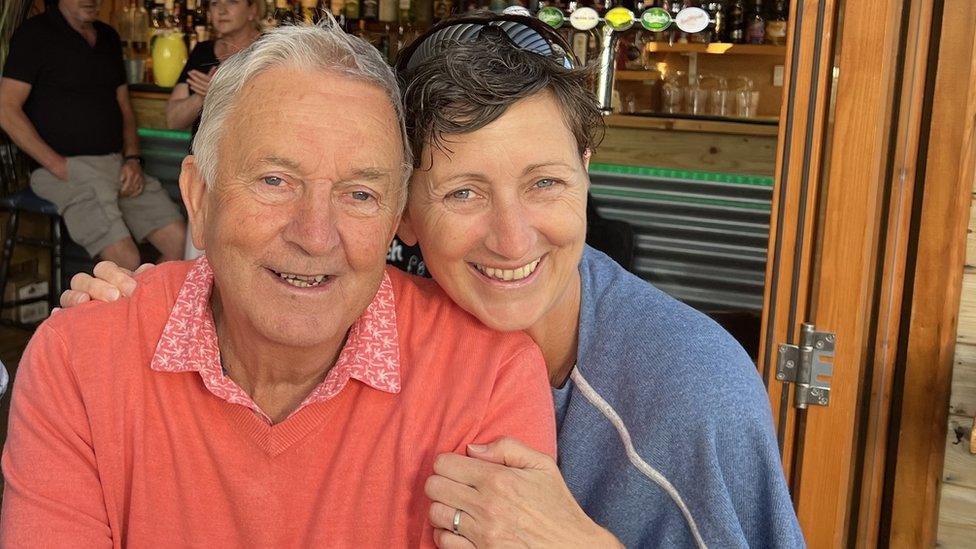
- Published7 April 2022
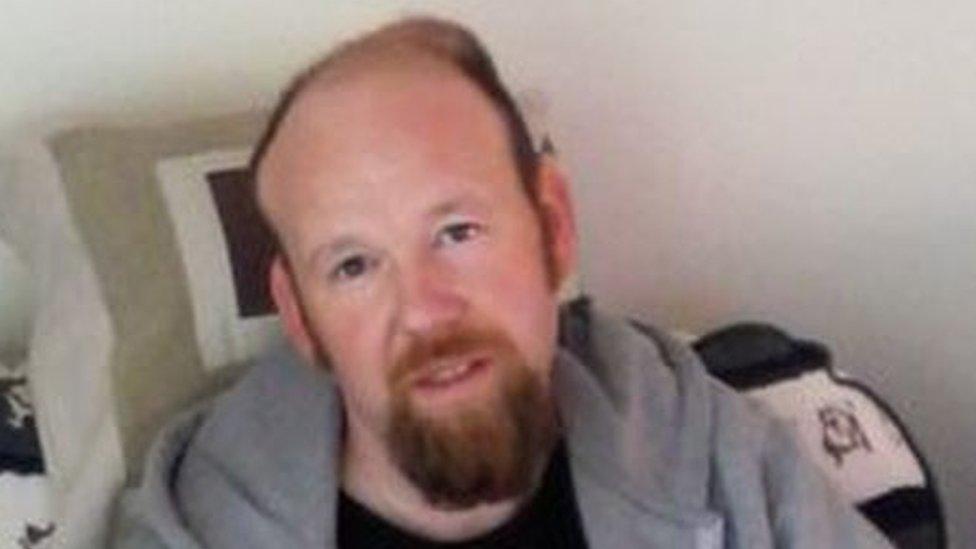
- Published29 March 2023
